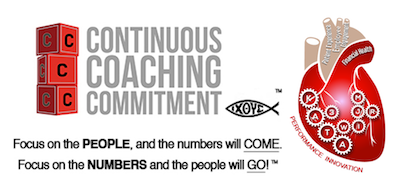Top managers globally are slowly discovering the role played by coaching in organizational success. All the big companies including Nestle, Verizon, Coca-Cola, and IBM now use coaching to usher in new corporate cultures, deal with complex job shifts, and fine-tune leadership performance.
At major financial companies, managers are now expected to spend a whole two-thirds of their time coaching the people they work with. The same applies to Google where coaching has now been identified as a key growth driver. In their famous “Project Oxygen” initiated in 2008, the company discovered that the emotional intelligence, involvement, and personal relationships with their teams, rather than their technical experience, are the most appreciated qualities of team managers. From then, Google managers have been required to double up as coaches for their teams.
Benefits of Continuous Coaching Commitment
The following are five ways that committing to continuous coaching has benefited these organizations and why you should join the bandwagon:
- Boost performance and productivity
When coaches, both internal and external, are involved in pointing employees in the right direction by helping them fine-tune objectives and priorities, success becomes inevitable. There will be fewer human errors as employee engagement increases and thus less time spent on correcting work. Additionally, due to increased confidence in individuals’ work, managers will be able to shift attention to other growth areas, resulting in greater organizational productivity.
- Improves employee well-being and job satisfaction
Overwhelming evidence shows that a majority of employees aren’t completely happy with their jobs, with many openly stating that they are frustrated or just plain stressed. Only about 33% of employees in the U.S. are enthusiastic about their work. Continuous coaching commitment is one of the best ways to improve employee well-being and job satisfaction. Good working conditions and close relationship between managers and employees, which can only be cultivated through regular coaching, are associated with higher worker morale and lower bore-out.
- Attract, develop, and retain the best talent
To attract the best talent, you need to be seen as an organization that treats employees well and gives everyone a chance to grow. Also, your existing employees must come out and openly vouch for the company. Guess what; this is exactly what happens in organizations with a coaching culture where employees felt safe and cared for. These same credentials are vital in retaining talent. When management and employees share a common goal and openly discuss important issues, employees will be more than happy to remain at your organization.
- Organization-wide behavior change
Continuous coaching commitment is also vital in changing the behavior of both employees and managers. When you invest in continuous coaching, individuals become re-engaged with their roles and the organization, gain greater clarity and perspective, and develop an improved capacity to address issues. It has also been observed that properly coached individuals develop leadership skills as well as become more confident and resilient in their duties. All of these qualities are important in taking an organization forward.
- Business growth and development
Finally, continuous coaching is critical for business growth and development. When properly coached, workers begin to discover their potential and even learn the skills to deliver on their responsibilities with minimal effort. A worker who knows their full potential is the best resource any workplace can have because they’ll hit their goals more often than miss their goals. When such a worker has also learned efficiency skills, you’re guaranteed consistent growth. It doesn’t end there; continuous coaching commitment can also help you smoothly transition your workforce from one generation to the next, sustaining your growth.









No comments yet.